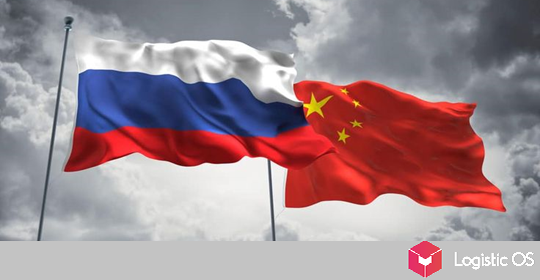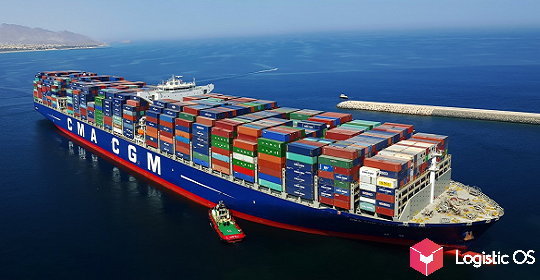Compared to the same period last year, in the 3rd quarter of 2022, transshipment volumes in Russian ports decreased by an average of 0.5%.
First of all, the reason is the disruption of previously built supply chains and trade routes between Russia and Western countries.
Container transportation is in big loss
The volume of container transportation of goods sank very significantly, by 33%.
One of the reasons was the lack of containers — this is a problem that appeared even during the pandemic.
To date, it has worsened in the Russian-European direction also because many European goods have come under sanctions, that is, their import into Russia is prohibited by Western countries.
As a result, containers exported from the Russian Federation are less actively returned.
Grain export volumes also sank
Despite the record grain harvest in Russia this year at the level of 150 million tons, its transshipment volumes in ports decreased by 11% compared to the second quarter.
This is largely due to the fact that the import of Russian products is technically difficult due to the same Western sanctions. For example, ship charter and cargo insurance are limited.
Another reason is the grain deal with Ukraine, which involves the establishment of a sea corridor for the export of its agricultural products.
Since Ukrainian grain enters world markets, this reduces the need for Russian grain to some extent.
Fertilizer and LNG shipments grow
At the same time, there are areas in which the volumes of shipments have not fallen.
For example, this applies to ores, which are still practically not affected by sanctions.
The same can be said about coal: although Europe banned its imports back in August, Russia was able to redirect supplies.
As for LNG, its transshipment volumes in Russian ports even increased by 22%.
True, the point here is largely in the low base of the 3rd quarter of 2021: then repair work was carried out at the Sakhalin and Yamal complexes.
It is possible that shipments will continue to grow: there is an energy crisis in the world, and many pipeline gas supply routes from the Russian Federation are not working at the moment.
Shipment of fertilizers increased even more: by 31%.
Last but not least, this is due to the fact that they did not fall under almost any sanctions, as well as the construction of a new terminal on the coast of the Gulf of Finland.
By the way, the situation is not the same in different ports of Russia.
For example, in the Baltic countries, which were mostly focused on shipments to the EU, the volumes sank by about 6%, but in the Far East they grew by 4%, which indicates the beginning of the Russian Federation’s reorientation towards Asian countries.

